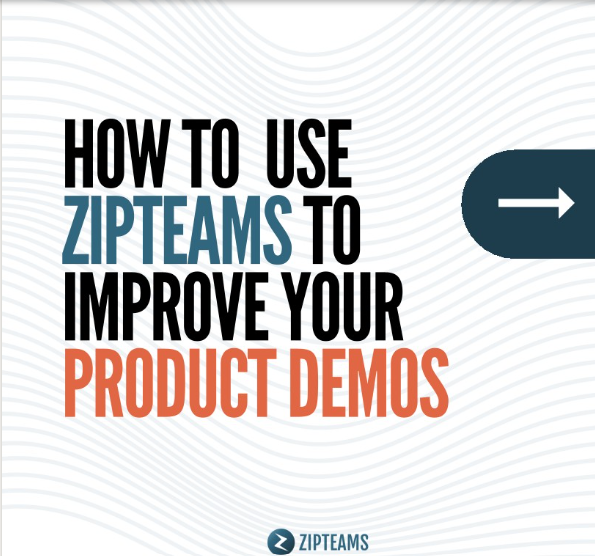Sales forecasting is one of the most critical tools that can help you understand the future revenue trajectory of your Edtech business. As the demand for educational technology continues to grow, predicting how many courses will be sold, when students will enrol, and how much revenue will be generated is more important than ever.
With advanced technology at your disposal, including AI-powered tools, Edtech companies can now achieve highly accurate sales forecasting, enabling better planning, decision-making, and growth.
But how exactly are Edtech companies nailing this crucial task?
53% of sales professionals who implemented AI use it for sales forecasting specifically, according to HubSpot research. With predictive analytics, sales teams can assess future revenue with 96% accuracy. These stats show how transformative accurate forecasting can be for your Edtech business.
In this blog, we’ll break down the strategies Edtech is using and showcase case studies to help you understand the tangible benefits. Let’s get started!
The Importance of Accurate Sales Forecasting in Edtech
Accurate sales forecasting is crucial for Edtech companies, given their unique sales cycles that align with academic calendars and enrollment periods. These cycles bring fluctuating demand, often influenced by factors like exam seasons, academic deadlines, and institutional purchasing schedules. Without precise forecasting, Edtech companies risk overestimating growth—leading to resource waste—or underestimating demand, resulting in missed revenue opportunities.
Did you know that, according to a recent study by Gartner, businesses that use predictive analytics can improve their sales forecast accuracy by up to 50%? For Edtech companies, this means avoiding costly miscalculations and ensuring that resources are allocated to meet the actual demand.
Accurate forecasting enables Edtech companies to streamline operations and capitalise on peak sales periods, such as back-to-school seasons or major exam preparation windows.
Here are some effective methods for enhancing sales forecasting in the Edtech sector:
- Leveraging Historical Data: Analysing past sales data can reveal patterns in demand fluctuations tied to academic cycles, helping predict future sales more accurately.
- Harnessing AI for Forecasting: AI-driven forecasting tools can analyse complex data and predict demand with greater accuracy, adapting to changes in the market and academic landscape.
By integrating these approaches, Edtech companies can improve decision-making, optimise resource allocation, and better anticipate the needs of their customer base.
Related: What best Edtech counsellors do on sales calls? Zipteams analyses thousands of education counselling calls daily and provides sales teams with the insights to make their calls learner-friendly. Check out our LinkedIn post to learn 5 things the best education counsellors do on their sales calls.
Leveraging Historical Data to Improve Forecast Accuracy
If you’re looking for a reliable starting point, historical data is your best friend. Past enrollment trends, purchasing patterns, and customer behaviour are all treasure troves of information that can significantly improve your sales forecast accuracy.
Key Considerations for Using Historical Data:
- Seasonal Trends: Analyse previous enrollment or purchasing peaks during academic periods.
- Customer Behaviour: Identify patterns in student or institutional purchases over time.
- Enrollment Windows: Predict demand based on academic deadlines or application cycles.
AI and Machine Learning for Predictive Analytics
According to HubSpot research, with predictive analytics, sales teams can assess future revenue with 96% accuracy. Artificial Intelligence (AI) and machine learning have revolutionised sales forecasting by enabling Edtech companies to analyse vast amounts of data and generate predictive insights.
These tools allow organisations to forecast future revenue more accurately by identifying patterns that may not be immediately obvious through traditional methods.
Benefits of AI in Sales Forecasting:
- Real-Time Insights: AI tools continuously learn from ongoing sales activities, enabling Edtech companies to adjust their forecasts in real time.
- Lead Scoring: Machine learning algorithms help prioritise leads by identifying which prospects are more likely to convert based on historical data.
- Data Integration: AI models can aggregate data from multiple sources such as CRM systems and marketing platforms, providing a holistic view of the sales funnel.
With machine learning algorithms, you can automatically score leads, prioritise sales efforts, and adjust forecasts based on the latest data.
For example, Infinity Learn leveraged Zipteams’ AI-powered conversational intelligence tools to identify high-propensity leads. By analysing customer interactions and predicting which leads were more likely to convert, their sales teams could follow up more effectively, improving overall sales outcomes and the accuracy of their forecasts.
Managing Sales Pipelines for Short-Term Forecasting
While long-term forecasting is critical for strategic planning, Edtech companies also need to manage their sales pipelines effectively to generate accurate short-term forecasts. Sales pipeline management involves tracking the progress of deals and estimating when they are likely to close.
Key Steps for Effective Pipeline Management:
- Deal Stages: Monitor each opportunity’s progression through the sales funnel, from prospecting to closing.
- Win Probability: Assign probabilities to deals based on historical success rates at each stage.
- Lead Qualification: Use tools to identify high-quality leads that are more likely to close.
You probably already know that tracking deal progression is key. But did you know that companies with well-managed sales pipelines can see a 28% boost in revenue growth as per Harvard Business Review?
By monitoring stages like deal initiation, qualification, and negotiation, your Edtech company can better predict when and how revenue will come in.
Also Read: Importance of CRM System for Business Growth in Edtech/Online Education Sales
Combining Qualitative Insights with Quantitative Data
While data-driven insights are vital for forecasting, qualitative inputs from sales teams, executives, and market experts can add an important layer of context. Many Edtech companies combine qualitative forecasting methods, such as expert opinions or focus groups, with quantitative data to refine their predictions.
How Qualitative Methods Help:
- Market Trends: Gain insights into emerging trends that may not yet be reflected in the data.
- Expert Opinions: Sales teams often have on-the-ground knowledge of prospects and can provide input that enhances data-driven models.
- Competitor Behaviour: Use qualitative insights to predict how competitor actions might impact demand.
It’s easy to focus on numbers and analytics, but don’t forget the value of qualitative insights. Sometimes, the best forecast improvements come from the ground by listening to your sales team, gathering market sentiment, and understanding the nuances of customer behaviour. By combining qualitative insights with your quantitative data, you get a more comprehensive view of your market.
The Benefits of Accurate Sales Forecasting in Edtech
Now that you know how to improve your sales forecasting, let’s talk about why it’s so important. Accurate forecasting isn’t just a “nice-to-have”. It’s essential for making informed decisions that lead to growth.
Key Benefits:
- Optimised Resource Allocation: Knowing exactly how many sales you can expect allows you to allocate staff, marketing budgets, and other resources more effectively.
- Improved Customer Experience: You can better serve your students or institutional clients by anticipating demand and ensuring your resources are aligned with their needs.
- Stronger Financial Planning: Accurate forecasting allows you to plan your finances with confidence, helping you secure investments, budget for growth, and mitigate risks.
Zipteams’ Impact on Edtech Sales Forecasting
Zipteams has become a trusted partner for several leading Edtech companies, helping them boost their sales forecasting accuracy and lead conversion rates. Let’s look at how companies like Coding Ninjas, Infinity Learn, and Lead School leveraged Zipteams’ AI-powered conversational tools.
- Coding Ninjas is India’s most recommended code learning platform with 80,000+ alumni working in 95/108 Unicorns in India. With Zipteams, they improved their lead conversion by using data to anticipate when students were most likely to enrol, helping them focus on high-demand periods.
- Infinity Learn, an education platform focusing on AI-driven learning, used Zipteams’ lead scoring system to prioritise high-potential leads. This allowed their sales teams to concentrate on the most promising prospects, increasing conversion rates and the accuracy of their sales forecasts
- LEAD School, India’s largest and fastest-growing School Edtech company, tapped into Zipteams’ real-time lead qualification, enabling them to fine-tune their sales forecasts and better manage their sales funnel.
Zipteams offers a cutting-edge solution for Edtech companies looking to improve their sales forecasting accuracy. By combining AI-powered tools, real-time lead qualification, and meeting rooms with conversational intelligence, Zipteams helps you streamline your sales processes and make data-driven decisions. Whether it’s prioritising high-conversion leads, tracking customer interactions, or optimising your sales pipeline, Zipteams empowers you to forecast with confidence.
Explore how Zipteams’ AI-powered solutions can transform your sales operations and drive growth in your Edtech company. Visit Zipteams to learn more and get started today!


























